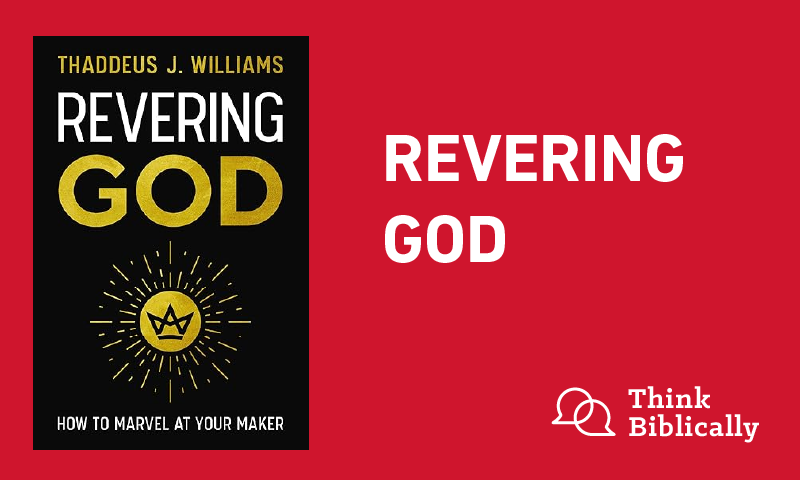Why is it often difficult to find pleasure and joy in God? If the chief end of man is to know and enjoy God, why do so many of us fall short? In this episode, Sean and Scott talk with Biola professor Thaddeus Williams about these questions and his new book . Dr. Williams argues that a deep-dive into the theological understanding of the reverence of God can transform our relationship with God and allow us to live in awe-inspired devotion.
Thaddeus J. Williams (Ph.D., Vrije Universiteit, Amsterdam) loves enlarging students‚Äô understanding and enjoyment of Jesus at 91∆ř”— in La Mirada, CA, where he serves as associate professor of Systematic Theology for Talbot School of Theology. He has also taught Philosophy and Literature at Saddleback College, Jurisprudence at Trinity Law School, and as a lecturer in Worldview Studies at L‚ÄôAbri Fellowships in Switzerland and Holland, and Ethics for Blackstone Legal Fellowship the Federalist Society in Washington D.C. He resides in Orange County, CA with his wife and four kids.
Episode Transcript
Sean: At the deepest level, what is the chief end of man? According to our guest today, in line with the Christian tradition, it is to know and glorify God. Yet, for many people, including Christians, God remains a vague, wispy, kind of, supersized projection of ourselves in the sky, or just an impossible-to-please killjoy. How can we find joy in knowing God, when our view of Him is often so inadequate? Our guest today, Talbot professor Dr. Thaddeus Williams, has written an excellent new book called Revering God. And by the way, he is a guest fill-in on the weekly Cultural Update. The goal of this is to talk about, how do we have a robust biblical view of God so we can glorify Him appropriately? Thaddeus, good to have you on, brother.
Thaddeus: It's a joy to be back.
Sean: Let's just jump right in. Your last two books dealt with issues like biblical justice and the mantra we hear in our culture, such as following your heart. Those are kind of timely cultural issues. But when I got a copy of this, I was like, "Wow, this is a timeless kind of book.‚ÄĚ Why the shift, and what makes thi
 91∆ř”—
91∆ř”—